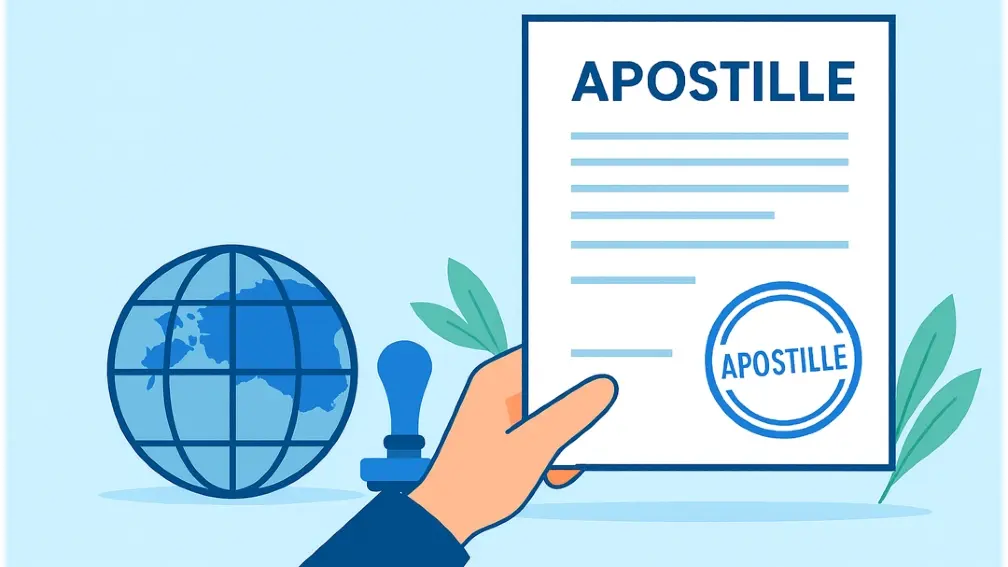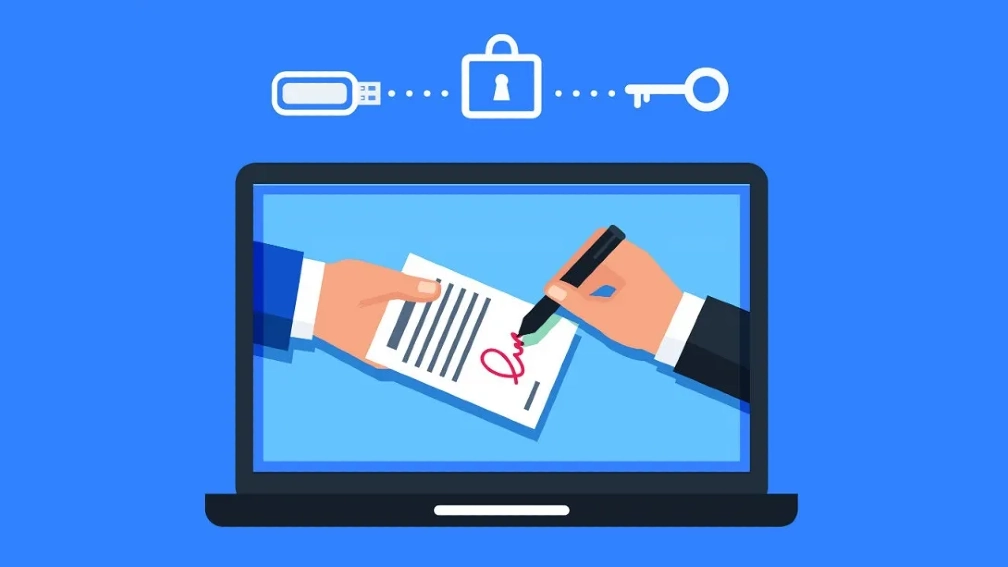Technology is always moving forward, and nearly everything around is already digitalised. Although legal matters and the law as an industry are pretty conservative, the need for faster and more accurate issuing of apostilles created the e-apostille, or the digital apostille.
What Is a Digital Apostille (E-Apostille)?
The digital apostille or the e-apostille is the electronic version of the standard apostille. Since its creation in 1961 on the Hague Apostille Convention, the apostille is a standard part of every legal document needed for use in other countries. It is proof that the document is official. Now, it receives its digital format, designed to simplify the process of passing legal documents online.
How are Digital Apostilles Processed?
Talking about a signature or apostille, it’s normal to ask ourselves – how something like this is issued digitally? Today’s e-apostilles are created through various digital technologies, including digital signatures, QR codes, and blockchain. A solicitor certification or a sign from a notary might be needed with it, but this is a standard way to do it.
Countries Currently Issuing E-Apostille Service
Although the world has been using the internet for decades, the so-called “e apostilles” are still not a standard part of every country’s system. However, multiple countries in Europe, Asia, and the Americas are using it, such as the Netherlands, Brazil, Spain, Switzerland, but also the US, and Great Britain, with certain limitations.
How Does E-Apostille Work?
The process begins when a digital document, such as a PDF, is submitted for legalisation. The legalisation office checks whether it is suitable for the e-apostille. The document may need solicitor certification, notary verification, or confirmation from Companies House if it is a business record. Once verified, the e apostille is issued electronically, creating a tamper-proof digital document that can be shared directly with the person or authority requesting the documents.
Verification Methods by FCDO
The UK Foreign, Commonwealth and Development Office (FCDO) provides multiple verification methods for electronic apostilles. A recipient can check the document online by scanning a QR code, verifying the qualified electronic signature, or downloading the certificate issued by the legalisation office. This ensures that UK documents legalised with the e-apostille can be trusted by universities, employers, and government agencies overseas.
Security Features and Authenticity Checks
Contrary to what some may think, electronic apostilles are much safer to use. Their creation comes with a set of security features provided by complex blockchain technologies or QR codes, providing additional verification layers. With it, authorities can instantly check if the apostille is authentic by clicking a few buttons on their computers.

4 Benefits of E-Apostilles over Traditional Apostilles
There are multiple benefits from using technology for this matter. Here’s a list of things that are obviously an advantage and shows why everyone should be using it.
- Faster Processing Time: With the ability to order online and have documents legalised digitally, the processing time is greatly reduced compared to paper-based apostilles. Individuals and businesses no longer need to wait for courier deliveries or postal delays.
- Reduced Paperwork and Courier Costs: The e-apostille eliminates the need for physical handling of documents. Personal documents, business documents, and academic records can be processed electronically, cutting out courier costs and reducing reliance on paper.
- Easy Verification: An electronic apostille certificate can be verified online by employers, universities, or any person or authority requesting the documents. Verification is instant, making it far more efficient than traditional apostilles.
- Enhanced Security: E-apostilles use tamper-proof digital certificates, either an advanced electronic signature or a qualified electronic signature, which ensures authenticity. This offers a level of security that paper apostilles cannot provide.
Challenges and Limitations of Electronic Apostille Services
Despite the obvious advantages, there are still challenges and things that need to be improved or changed. First, only some countries recognise them, and second, they are not always compatible with non-digital systems. Here are some of the issues:
- Not all countries recognise them yet.
- Compatibility with non-digital submission systems.
- Legal acceptance for certain visa/work/residency applications.
- Technical literacy and digital infrastructure requirements.
The Future of Apostilles
As everything becomes digitalised, so will this. The future is clear for apostilles – all countries will surely adopt this system, and the only question is when this will happen. Soon, electronic versions will be more common, and traditional paper versions will slowly go into history.
How E-Apostilles Could Integrate with International Legalisation Processes?
Electronic apostilles are expected to merge seamlessly with international legalisation frameworks. Over time, documents digitally certified by a UK solicitor, notary public, or Companies House could be processed entirely electronically, ensuring compliance with the Hague Apostille Convention. This integration would make it easier to combine multiple documents relating to employment, trade, or education into one secure digital set.
Potential Impact on International Employment, Education, and Trade
For global mobility, the e-apostille is transformative. Employers will be able to check the document instantly, academic institutions can confirm authenticity online, and trade documents can be exchanged across borders without courier delays. This digital leap will simplify cross-border recognition of UK documents and strengthen trust in international dealings.
How to Get an E-Apostille?
To obtain an e-apostille, you need to submit your digital document in PDF format to the legalisation office. Depending on the document types, solicitor certification or notary verification may be required. Once the document is certified, it can be legalised electronically. The e-apostille will then be issued as a secure digital certificate suitable for international use.
Contact Our Expert Team for the Right Support
If you require guidance on how to have your documents legalised with an e-apostille, our expert team of solicitors and legal professionals can help. Whether you need a signature from our solicitor, notary certification, or advice on electronic solicitor certification, we provide comprehensive support for both personal documents and business documents. Contact us today to ensure your documents are properly prepared and legally recognised abroad.
FAQs
Are digital apostilles legally binding in court or for employment?
Yes. Digital apostilles are legally binding under the Hague Apostille Convention, and e-apostille will be accepted by most countries that are part of the convention. They hold the same validity as traditional paper apostilles.
Do e-apostilles require notarisation before issuance?
In many cases, yes. Certain public documents and business documents may need to be certified by a UK solicitor or a notary public before they can be legalised electronically.
Can I use an e-apostille for documents I previously submitted with a physical apostille?
If the authority requesting the documents accepts an electronic version, you may apply for an e-apostille using the same set of documents. However, paper-based apostilles remain valid and do not expire.
What types of documents are eligible for e-apostille?
Academic documents, business records from Companies House, personal documents, and other public documents can all be certified and legalised electronically, provided they are suitable for the e-apostille.
Will e-apostilles eventually make physical apostilles obsolete?
It is expected that electronic apostilles will become the standard over time, but paper apostilles will continue to exist until every authority requesting the documents has moved to digital-only systems.




